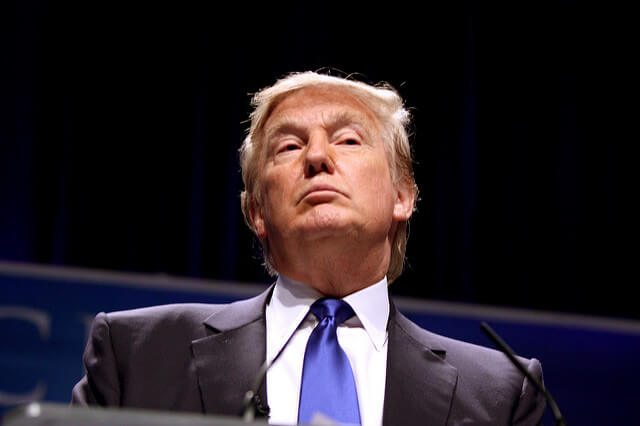Table of Contents Show
In October, we posted an article about how President Clinton or President Trump would affect the overall economy and the housing market. At the time, Hillary Clinton had a large lead in the polls. Trump overcame a lot in his improbable victory. His policy proposals on the campaign trail were not as detailed as hers were and even were contradictory at times. Nonetheless, we can cobble together his major campaign positions to prognosticate the economic impact.
A large tax cutA large tax cut
The centerpiece of his economic plan called for slashing tax rates. There are currently seven tax rates, ranging from 10% to 39.6%. The top rate is on income above roughly $470,000 if married and filing jointly and roughly $418,000 if single (note: this is the marginal tax rate, which means it is just income above this level that is taxed at this rate). High-income earners also pay a 3.8% surtax on net investment income (e.g., rents, royalties, etc.) instituted as part of the Affordable Care Act (a.k.a. Obamacare). Certain other types of income, such as qualified dividends and long-term capital gains, are taxed at reduced rates, which is a maximum of 20% for those in the 39.6% tax bracket.
Trump has proposed reducing the seven brackets to three: 12%, 25%, and 33%. Under the Trump plan, the lowest rate would apply on income up to $75,000 for those married and filing jointly ($37,500 for single filers), a 25% rate for incomes from $75,000 to $225,000 ($37,500 to $112,500 for singles), and a 33% tax rate on incomes above $225,000 ($112,500 for singles). The net investment tax would be eliminated under his proposed plan. He also plans to do away with the estate tax and cut the corporate tax rate to 15% from 35%.
What it means for homebuyers – the pessimistic viewWhat it means for homebuyers – the pessimistic view
Back in July, the bipartisan Congressional Budget Office (CBO) estimated Trump’s plan would add over $9 trillion to cumulative deficits over the next decade. The CBO also projects the national debt would spike to 127% of the GDP. This year, it was about 72%.
The deficit has been shown to have an impact on interest rates. Generally, long-term budget deficits are associated with higher interest rates. In the 1990s, under President Bill Clinton, deficits and Treasury rates both fell. This led to lower mortgage rates, helping fuel the bullish housing market.
For a first-time homebuyer that is ready to make the purchase and has a long time horizon in mind, the next few months may be the time to take the plunge. The Federal Reserve has sent signals that it will raise short-term interest rates at its December meeting, pushing up longer rates. Donald Trump’s fiscal policies may well be the force to drive longer-term interest rates higher in the coming years.
The tax cuts may provide a short-term boost to the economy. This would be positive for the housing market in the near term but could be harmful over the medium term given the mounting deficits and potential for higher mortgage rates.
What it means for homebuyers – the optimistic viewWhat it means for homebuyers – the optimistic view
Many are upset with Donald Trump’s election, particularly in this area, which is firmly a blue state. However, there are reasons to be bullish about the economy and real estate.
The stock market, after initially declining Wednesday morning, came roaring back. Over the next two days, the S&P 500 gained over 1%. This upward move is fueled by the belief that lower taxes and regulations will drive higher economic growth. Lower taxes will put more spending power in the hands of people, which could be used to purchase assets, including houses. The trade barriers he has talked about erecting could create a stronger dollar, which would make the United States an attractive long-term investment opportunity. As a major metropolitan area, New York City would be in a prime position to benefit. All of this would be bullish for the housing market, should it come to fruition.
Final thoughtsFinal thoughts
It is difficult to determine which policies Trump will strongly advocate forgiving his often bombastic and sometimes contradictory vitriol on the campaign stump. Still, he has been less combative following the election, including complimentary remarks about President Obama. He does not have a track record as a politician, but he has been a businessman, having learned the real estate industry from a young age.
President-elect Trump has Republican majorities in Congress, which are likely to support his tax policies. Nonetheless, at times, he has had a contentious relationship with certain members, including the party’s leaders. Republicans do not have a filibuster-proof 60-seat majority in the Senate, either. In other words, the political situation is fluid.

